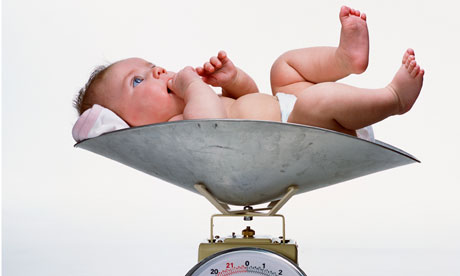
Pregnant women with asthma have been advised not to panic after new research linked the breathing condition to a much greater risk of health problems in the baby and woman.
Asthmatic mothers-to-be are at "significantly increased" risk of developing dangerously high blood pressure or their child being born prematurely as a result of their breathing difficulty, the study found.
"Maternal asthma significantly increases the risk of pre-eclampsia [high blood pressure in pregnancy] by at least 50%," report the Australian and American co-authors in BJOG: An International Journal of Obstetrics and Gynaecology, published on behalf of the UK's Royal College of Obstetricians and Gynaecologists.
Infants born to mothers with asthma are also much more likely to have a low birth weight or be small for their gestational age (SGA), the co-authors found when they analysed 40 previous research papers published betweeen 1975 and 2009.
For example, they found that "the mean birth weight of infants with mothers with asthma was 93g (o.2lb) lower than that of infants of women without asthma". A baby born at less than 2.5kg (5.51lb) is classed as having a low birth weight.
Leanne Metcalf, assistant director of research at Asthma UK, said the study was useful because it had examined all the existing evidence about the risks to asthmatic pregnant women.
"Although it makes for quite scary reading it is important that pregnant women who have asthma do not panic, as studies like this will make healthcare professionals more aware of the importance of effective asthma management during pregnancy.
"We encourage pregnant women who have asthma to be monitored regularly throughout their pregnancy and it is crucial that medical professionals are sympathetic to their concerns and provide the support and advice they need. It is also important that all mums-to-be eat a healthy, balanced diet and do not smoke during pregnancy to give their baby the best possible chance of a healthy childhood," Metcalf added.
About 5.4 million Britons, or about one in 11 of the population, has the condition, according to Asthma UK. The authors conclude that: "Asthma is a common chronic disease among pregnant women, and the extent of the risk for both mother and baby during the perinatal period make this a significant health issue.
"This meta-analysis indictaes that pregnant women with asthma are at significantly increased risk of a range of adverse perinatal outcomes, including low birth weight, SGA, preterm labour and delivery, and pre-eclampsia. Maternal asthma reduced fetal growth [and] significantly increases the risk of both pre-term labour and delivery prior to 37 weeks of gestation," they added.
The potential consequences are so serious that a mother-to-be and her as yet unborn child need to be monitored regularly, at least once a month, they recommend.
Professor Khalid Khan, BJOG's scientific editor, said: "Asthma can complicate pregnancy. However, this new research is important as it highlights the need for effective management of the condition and the need for increased monitoring. Controlling the condition should enable a woman to maintain a healthy pregnancy with little risk to her or the baby."
But Mervi Jokinen, an adviser to the Royal College of Midwives, said the recommendation of monthly appointments during pregnancy had more relevance for other countries' health systems than for the NHS, as mothers-to-be in the UK receive seven appointments with a doctor or midwife if they already have a child, or 10 appointments if it is their first pregnancy.
"We seldom hear of cases where a pregnancy or labour is complicated by asthma, because the care of such women is very good and is usually given by a multidisciplinary team involving a physician, midwife and consultant obstetrician," said Jokinen.
Commonly used asthma drugs, especially inhaled corticosteroids and inhaled short-acting beta agonists, do not raise the risks identified and the former may prevent outcomes such as low birth weight, the authors found.

